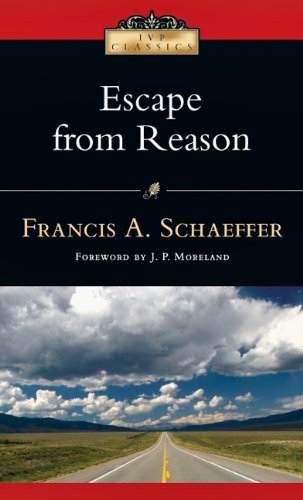A Brief Book Summary from Books At a Glance
Introduction
Francis Schaeffer (1912-1984) was a leading Christian thinker, author, apologist, and evangelist. He founded the famous L’Abri Fellowship in the Swiss Alps and shared and defended the faith with countless people. Schaeffer published a large number of widely read books and dramatically influenced his generation in thinking about apologetics, ethics, philosophy, and theology. He challenged Christians to think in terms of their Christian worldview, and to learn how to communicate with people in Western societies that were operating under very different assumptions.
Escape from Reason and He is There and He is Not Silent are two classic works by Schaeffer. Although neither book is very long, they are both excellent examples of Schaeffer’s thinking and approach. They are historically situated (as all books are), but they are more than mere period pieces—they still repay reflection and thought today. Books At a Glance offers both of these books in summary this week to our members. We trust you will enjoy!
Chapter 1
Thomas Aquinas separated the spheres of Nature and Grace. The former sphere dealt with lower things, things that human beings could study and know on their own. The latter sphere dealt with heavenly things, and grace was required to understand them. In the centuries following Aquinas, the divide between the two spheres was made wider and wider. Human beings believed that they could reason autonomously in the lower sphere. Over time the sphere of Nature began to eat up the sphere of Grace. Art began to demonstrate this movement to the lower sphere, and religious images were presented in natural rather than symbolic styles. We will refer to Nature as the “lower storey” and Grace as the “upper storey.” It is necessary to have a unity between them. Da Vinci tried to find unity between particulars and universals, but was unable to do so—none of his followers were successful, either.
Chapter 2
The Reformation provided a different response. It upheld a total fall into sin, unlike Aquinas’s partial fall which had left the intellect intact. Human beings were fallen in both intellect and will, and they were not autonomous in their reasoning or in any other area of life. The Reformers saw that the Scriptures were the key to knowledge. We do not have exhaustive knowledge, but we have genuine knowledge: “true truth.”…
[To continue reading this summary, please see below....]The remainder of this article is premium content. Become a member to continue reading.
Already have an account? Sign In
